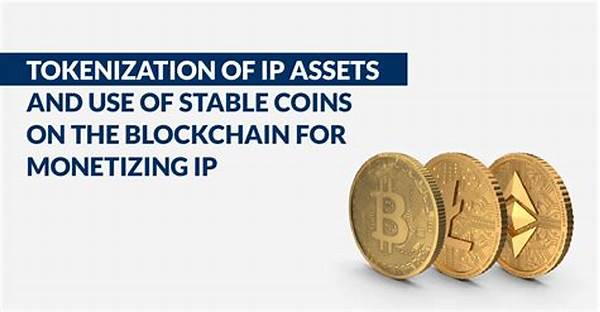Once upon a time in the bustling world of blockchain technology, there was a particular buzzword that dominated coffee shop banter among developers: smart contracts. These self-executing agreements held promises of revolutionizing everything from finances to supply chains. But as they gained popularity, a wicked challenge emerged – the infamous computational overhead. Imagine trying to keep your phone working faster while running a bazillion apps simultaneously. That’s what developers faced while trying to optimize these digital agreements. And so, the mission of minimizing computational overhead in smart contracts began.
Read Now : Decentralized Finance And Ledgers
The Quest for Efficiency
Every superhero journey starts with the hero discovering their mission. For developers, minimizing computational overhead in smart contracts became that mission! See, if a smart contract’s code hangs out and demands too much computer power, it’s like that one friend who always hogs the bandwidth during movie night – annoying and costly! Gas fees start stacking up, and no one likes burning money, right? By maximizing efficiency, you’re not only cutting costs but also making blockchain more accessible to the everyday dude. This streamlining allows contracts to meet their potential swiftly, maintaining the zest without draining resources. Think of it like reducing that unnecessary drama in your life – free, peaceful, and efficient.
Tricks to the Trade
1. Keep it Simple, Smarty: Always refine your code. More concise scripts mean less processing, minimizing computational overhead in smart contracts.
2. Externalize What You Can: Push heavy computations off-chain. It’s like outsourcing tedious chores, freeing up bandwidth.
3. Design Thoughtfully: Before you dive in, plan every detail. Forethought can save tons of computation later.
4. Reuse & Recycle: Don’t reinvent wheels! Use existing libraries wisely to minimize unnecessary computations.
5. Test, Test, Test: Debug like a boss! Spot those pesky over-consumption bugs early on and kick them out.
Navigating Through Gwei
Imagine being in a candy store, but each candy comes with a hidden cost. This is what gas in the Ethereum network feels like. Each line of code in smart contracts requires a certain amount of gas, which is priced in Gwei. Now, nobody wants to spend more Gwei than necessary, right? So minimizing computational overhead in smart contracts becomes your golden ticket. By refining code, developers save gas, making transactions chill and hassle-free. It’s all about optimizing your digital power consumption while ensuring everything still runs like a charm. It’s akin to grabbing your favorite candy – sweet, simple, and without draining your pocket.
Read Now : Cybersecurity In Electronic Voting
Mastering the Code
If we’re talking about mastering code, let’s say, minimizing computational overhead in smart contracts is like taming a wild beast. You’ve got power, potential, but a need for control. A brief pointer here: well-optimized code doesn’t just benefit developers’ wallets by reducing spent gas but also aids the entire network. Speed and efficiency can ripple through an entire blockchain, making transactions smoother, and more attractive to users. This harmonious blend may further push smart contracts into mainstream conversations, adding a spark of futuristic vibe into mundane transactions.
Embracing Scalability
With the blockchain world marching into the future, minimizing computational overhead in smart contracts presents the gateway to scalability. Picture this: smart contracts no longer restrained by clunkiness, but nimble and agile. Enhancing performance paves the way for more advanced and complex use cases, where seamless interaction becomes the norm. In this brave new world, resources are optimized, costs slashed, and efficiency reigns supreme. Preparing for such a future means embracing technology so fundamentally sleek that it seamlessly integrates into daily life without a second thought.
The Real Deal with Gas Fees
Picture yourself at a party with friends, not wanting to leave early because of transportation issues. This dilemma resonates with high gas fees in smart contracts – a nagging hitch for blockchain endeavors. Minimizing computational overhead in smart contracts can be the party’s VIP pass. By perfecting efficiency, developers cut those metaphorical taxi costs, allowing users to engage without friction. It is liberation from technical constraints stifling creativity and encouraging innovation without burdening finances. Imagine this: smart contracts functioning effortlessly, like a well-coordinated DJ mixing tracks, with costs forgotten.
The Takeaway Challenge
In the rapidly evolving tech world, the key takeaway should be screaming loud and clear: minimizing computational overhead in smart contracts isn’t just another line item on the to-do list. It’s a necessity! This challenge not only enhances the performance and efficiency of digital agreements but redefines how we view blockchain itself. Imagine demystifying these contracts so they become a staple in everyday tasks, transforming how we interact with digital assets. So raise that digital quill, refine your code, and become a champion of smart contract innovation, where streamlined efficiency meets boundless potential!



